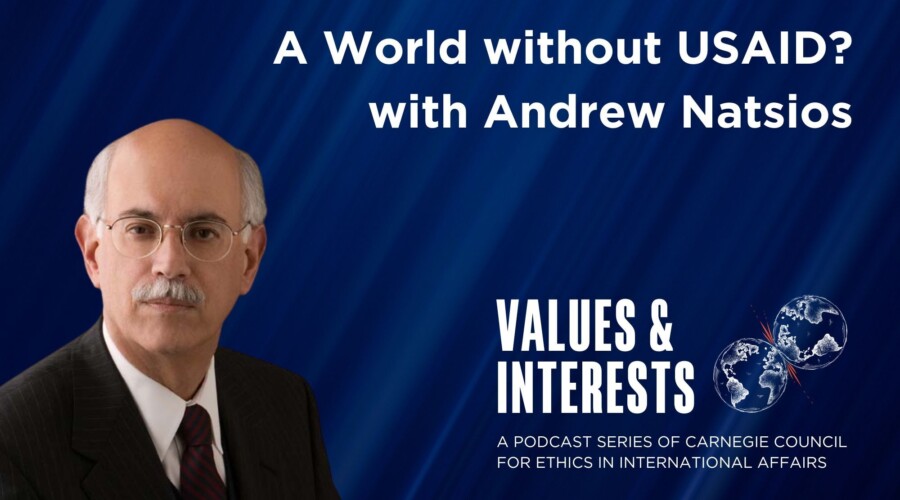When China loosens the peg of its currency to the dollar, the U.S. will benefit--but it may hurt labor in China. While the looser Chinese currency is fairer to trading partners, it conflicts with protection of Chinese citizens' interests. How would you balance the two concerns?
You may also like

MAY 6, 2022 • Podcast
For Companies, Could China Be the Next Russia? with Perth Tolle
Isaac Stone Fish and finance expert Perth Tolle discuss the global economic backlash to Russia after the Ukraine invasion, China, and much more.
Hosted by Isaac Stone Fish

FEB 26, 2025 • Podcast
A World without USAID? with Andrew Natsios
Andrew Natsios, former USAID administrator, discusses humanitarianism as a moral principle and the potential geopolitical consequences of the shuttering of the aid organization.
Hosted by Kevin Maloney

FEB 20, 2025 • Podcast
Morality and Power from the Individual to the Institution, with Joel Rosenthal
For the inaugural episode of "Values & Interests" Joel Rosenthal unpacks the complex and challenging relationship between morality and power in our personal lives and geopolitics.
Hosted by Kevin Maloney